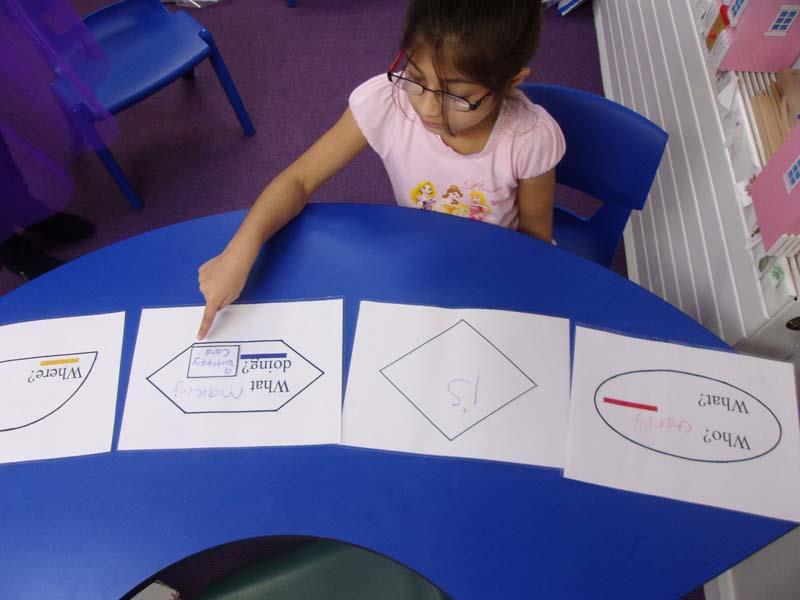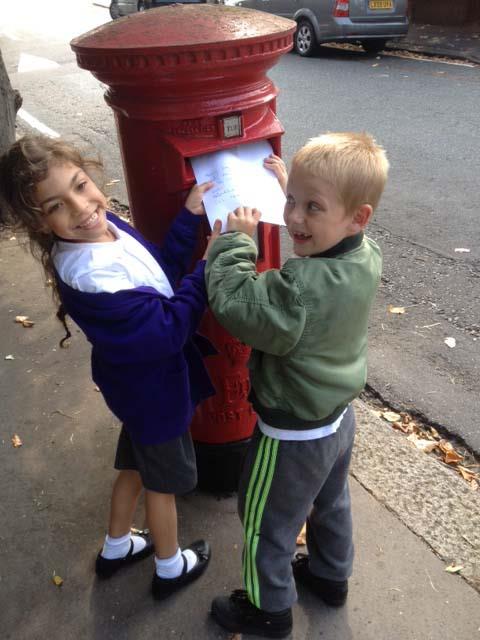In the UK, more than one million children and young people – that’s two to three in every UK classroom – have some form of long-term and persistent speech, language and communication difficulty which can affect them early, severely and for life.
At Aerodrome Primary Academy in Croydon, the proportion of children with SEN, and in particular those with speech, language and communication needs (SLCN), is well above average. Aerodrome is committed to providing a no barriers curriculum, to ensure all children, particularly those with SLCN, enjoy learning. The school focuses on all pupils embracing learning and developing creativity while having fun, making friends, respecting individuality and ultimately reaching their potential.
But how is this achieved? The school incorporates an Enhanced Learning Provision for pupils with severe speech, language and communication disorders. The provision forms an integral part of the mainstream school and is staffed by a specialist speech and language therapist together with specialist speech and language teachers and support staff.
Despite having above average levels of children with SEN, the school was applauded for its successful holistic approach by judges as it won the Primary School of the Year accolade at the annual Shine a Light Awards, which recognise those schools and settings that champion the SLCN of children and young people and offer exceptional support and best practice.
Aerodrome offers pupils a “Chance for All” to enjoy a full and rich educational experience. This has been achieved through hard-working and dedicated school staff and effective liaison with parents and local multidisciplinary services.
So, off the back of this success, Headteacher Update has asked me to give 10 tips to embedding communication across a school.
Training
Regular staff training ensures speech, language and communication is highlighted as significantly important when planning and delivering the curriculum. At Aerodrome, staff from speech and language and education disciplines have fused together their skills and knowledge to produce a training package as part of the academy trust’s professional development programme. Rapidly becoming a centre of knowledge, the school is proud of its commitment to raising SLCN across the Trust.
Within the academy, training for student teachers, NQTs and all school staff ensures everyone is knowledgeable regarding early identification and support for pupils with SLCN. Training is provided by experienced staff using up-to-date support strategies, enabling teachers and support staff to provide differential learning opportunities to children within the Enhanced Learning Provision and across the whole mainstream school community, thus supporting successful integration.
Early support
Language and communication development is prioritised through working closely with the children’s centre and nursery to ensure “at risk” children are identified and supported early on.
In our children’s centre, English as an additional language (EAL) groups encourage language and communication development through stories, songs and creative activities while nursery staff are highly trained to identify speech and language delay using the WellComm Speech and Language Toolkit screening programme, a traffic light system which prioritises children for individual and group speech and language support.
Children with more significant communication difficulties follow a specialist sensory programme run by highly trained teaching staff targeting early skills such as attention and initiating communication.

Screening
Screening for SLCN on school entry allows children to be identified early and then prioritised to attend an eight-week “Just Arrived at School” oral language programme targeting vocabulary, grammar and communication skills. During the sessions, children are identified for additional support, such as referrals to communication, speech and language therapy, where needed.
Curriculum
A linked topic and skills curriculum across the whole school ensures all areas of learning are linked to an overarching theme. Regular out-of-school visits support a “living language” approach to vocabulary development, which forms the foundation for all successful learning across the whole curriculum.
Whole-school systems
Whole-school visual support systems are in place ensuring the school is a communication-friendly environment. Communicate in Print, Shape Coding, Cued Articulation and the use of Makaton, ensures all pupils, especially those with SLCN are supported, acknowledging their unique learning needs.
This approach has proven successful both with pupils within the Enhanced Learning Provision and those within the mainstream school. Currently pupils from the Enhanced Learning Provision are trialling a new approach called Bridging the Gap, aiming to develop complex grammar using shapes and colours as two-dimensional visual support.
Reading and writing activities will form a substantial part of these interventions and it is hoped to develop this approach across the whole mainstream school.

Specific programmes
Foundations for literacy are laid down through specific programmes such as Talk for Writing. This ensures children have much-needed oral practice for vocabulary, language structures and narrative skills to support writing development. The Partners in Talking programme builds confidence to use oral skills during small group activities and then during larger groups within the class.
National events
Speaking and listening activities throughout the whole school are prioritised during regular national events such as No Pens Wednesday and The Chatterbox Challenge. Recently a school-based joke competition, Voice Box, run by the Royal College of Speech and Language Therapists, was held and the school’s winning joke was selected as a finalist to be shared at the Houses of Parliament. The competition, open to the whole school, saw many pupils with SLCN confidently share their jokes in front of a panel of judges. Last summer the school talent contest, Aerodrome’s Got Talent, also saw many successful and confident entries from pupils with SLCN.
The whole school
Involvement of the whole school community supports children with SLCN from the headteacher to the caretaker. Focusing on specific projects encourages specific vocabulary and problem-solving skills to develop.
At the end of term the whole school community celebrates individual pupil’s achievements in the “Walk of Fame” celebrations. Pupils with SLCN stand with their peers to demonstrate excellent examples of achievement recorded by class teachers across each term.
Parent involvement
Parent involvement in children’s learning through teaching specific strategies is actively encouraged across the school. Within the Enhanced Learning Provision parents regularly attend training sessions where speech and language strategies to be encouraged at home are taught.
Wider services
Close liaison with multi-disciplinary services such as Croydon’s Speech and Language Therapy Service, educational psychology, and the hearing impairment services ensures barriers to learning are identified early and supported.
- Maxine Whitmore is a specialist speech and language therapist at Aerodrome Primary Academy in Croydon.
Shine a Light
The Shine a Light Awards are organised by Pearson in partnership with The Communication Trust. To access the winners and highly commended best practice case studies, visit www.pearsonclinical.co.uk/educationnews/shine-a-light.aspx
